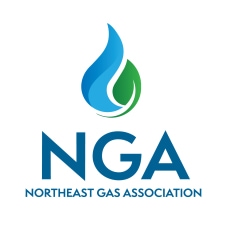NGA statement on the release of NPCC's Northeast Gas/Electric System Study
NGA Applauds NPCC Study Highlighting the Critical Importance of Gas Infrastructure in Maintaining Regional Energy Reliability
On January 21, 2025, the Northeast Power Coordinating Council (NPCC) publicly released its much-anticipated study examining the Northeast Gas/Electric System. The study reviewed the gas supply and pipeline constraints that may arise during winter weather events, and the ability of the gas system to meet electricity generators’ growing demand. NGA is pleased to have served on the steering committee for the study along with NPCC, New York Independent System Operator, ISO New England, and the North American Electric Reliability Corporation.
The study underscores the essential role natural gas plays in meeting energy demand in New York and New England. The report makes several key points that can inform policymakers, regulators, and operators across the region.
Key Points:
- Gas Supply Risks: The study observes that, unlike local natural gas utility companies, most gas-fired generators do not hold firm transportation contracts. Put more simply, many electric power generators purchase gas supply that may not be available, should a firm customer require that gas supply.
- During peak heating months, when demand on pipelines is highest, interruptible contracts leave power generators exposed to potential gas supply disruptions.
- Gas Infrastructure Constraints: The study highlights constraints in both New England and New York’s gas infrastructure to supply power generation during cold weather conditions. Simply stated, as demand for natural gas has grown there has not been a sufficient amount of new delivery infrastructure built to meet that demand.
- As a result of these constraints, the region is significantly dependent on oil for power generation.
- Importance of LNG Importers: Liquefied natural gas (LNG) importers, such as Repsol’s Saint John LNG facility, Constellation’s Everett Marine Terminal, and Excelerate’s Northeast Gateway are crucial in supporting gas-fired generators in New England.
- For example, the study found that “if Constellation EMT is not available, generators will have to replace up to 400 MDth/d of gas generation with an equivalent amount of oil generation. With the scheduled retirements of oil plants and the absence of Constellation EMT in the modeled long-term scenario, capacity deficiency actions would be needed to maintain electric system reliability.”
The report notes that to tackle these challenges, grid operators may need to implement changes in wholesale market design and develop strategies to ensure that gas-fired generation can reliably meet demand during extreme weather events. Expanding natural gas delivery infrastructure would be "one of the most economic mitigation measures.”
NGA and the natural gas industry remain committed to working with policymakers, regulators, and industry stakeholders to enhance regional energy reliability and ensure a sustainable energy future for the Northeast. We are committed to a safe, reliable, efficient and affordable delivery of energy to customers as a continuing part of an environmentally responsible energy future.
For questions, contact Christian Rodrick at crodrick@northeastgas.org.

